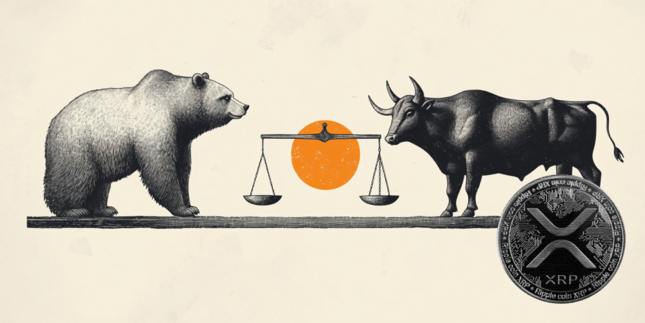Nigeria faces soaring inflation and currency devaluation, driving citizens to cryptocurrency as a hedge, while the government moves to regulate digital assets.
Nigeria’s economy is facing a severe crisis, with rising inflation and a weakened currency creating hardships for millions of citizens. As traditional financial systems struggle, many Nigerians have turned to cryptocurrency as a hedge against economic instability. Digital assets have provided an alternative for preserving value, particularly as the country’s local currency continues to decline.
The government has introduced several economic measures to stabilize the situation, including removing fuel subsidies and unifying exchange rates. However, these policies have had unintended consequences, such as increased fuel costs and a higher cost of living. The crisis has been especially difficult for communities dependent on subsistence farming, where price volatility has made basic goods even more inaccessible.
Amidst these challenges, cryptocurrency adoption in Nigeria has surged. A report from a blockchain analytics firm highlights that digital asset transactions in the country have grown significantly over the past year. This increase reflects both a rising distrust in traditional financial institutions and a growing demand for alternative financial solutions. Many Nigerians view crypto as a way to protect their wealth from inflation, escape restrictive banking regulations, and access financial opportunities beyond national borders.
Recognizing the expanding role of digital assets, Nigerian authorities are working to regulate cryptocurrency and integrate it into the formal economy. The Securities and Exchange Commission (SEC) is currently drafting policies to oversee crypto transactions and ensure compliance with tax laws. A legislative bill focused on taxation and regulation of digital assets is under review, and there is optimism that it will soon be passed.
Meanwhile, the Central Bank of Nigeria (CBN) is actively working to stabilize the economy by addressing foreign exchange backlogs and restoring investor confidence. The bank has already cleared a portion of outstanding obligations and has plans to resolve more in the near future. Additionally, President Bola Tinubu has introduced initiatives to release food reserves and establish a commodity board aimed at preventing price manipulation and ensuring food security.
Despite these efforts, economic uncertainty remains. Many experts believe that cryptocurrency could provide a long-term financial solution if properly regulated. However, striking a balance between innovation and financial oversight is crucial to prevent potential risks associated with digital assets, such as fraud and money laundering.
Nigeria’s rapid adoption of crypto presents both opportunities and challenges. If effectively managed, digital currencies could offer financial freedom and economic resilience. However, ensuring that regulations do not stifle innovation while maintaining financial stability will be key to the country’s future. Experts argue that investment in education, particularly in blockchain and digital assets, is necessary to help Nigerians adapt to the evolving global economy.
For Nigeria, the road ahead is uncertain, but the role of cryptocurrency is becoming increasingly important in shaping its financial landscape. If managed well, it could provide millions with access to a more stable and inclusive economy.
All content is for informational purposes only and does not constitute financial advice. Always conduct your own research and consult a professional before investing.
Recommended Content
Editors’ Picks

Shiba Inu eyes positive returns in April as SHIB price inches towards $0.000015
Shiba Inu's on-chain metrics reveal robust adoption, as addresses with balances surge to 1.4 million. Shiba Inu's returns stand at a solid 14.4% so far in April, poised to snap a three-month bearish trend from earlier this year.

AI tokens TAO, FET, AI16Z surge despite NVIDIA excluding crypto-related projects from its Inception program
AI tokens, including Bittensor and Artificial Superintelligence Alliance, climbed this week, with ai16z still extending gains at the time of writing on Friday. The uptick in prices of AI tokens reflects a broader bullish sentiment across the cryptocurrency market.

Bitcoin Weekly Forecast: BTC consolidates after posting over 10% weekly surge
Bitcoin price is consolidating around $94,000 at the time of writing on Friday, holding onto the recent 10% increase seen earlier this week. This week’s rally was supported by strong institutional demand, as US spot ETFs recorded a total inflow of $2.68 billion until Thursday.

XRP price could renew 25% breakout bid on surging institutional and retail adoption
Ripple price consolidates, trading at $2.18 at the time of writing on Friday, following mid-week gains to $2.30. The rejection from this weekly high led to the price of XRP dropping to the previous day’s low at $2.11, followed by a minor reversal.

Bitcoin Weekly Forecast: BTC consolidates after posting over 10% weekly surge
Bitcoin (BTC) price is consolidating around $94,000 at the time of writing on Friday, holding onto the recent 10% increase seen earlier this week.

The Best brokers to trade EUR/USD
SPONSORED Discover the top brokers for trading EUR/USD in 2025. Our list features brokers with competitive spreads, fast execution, and powerful platforms. Whether you're a beginner or an expert, find the right partner to navigate the dynamic Forex market.